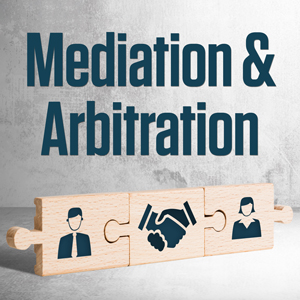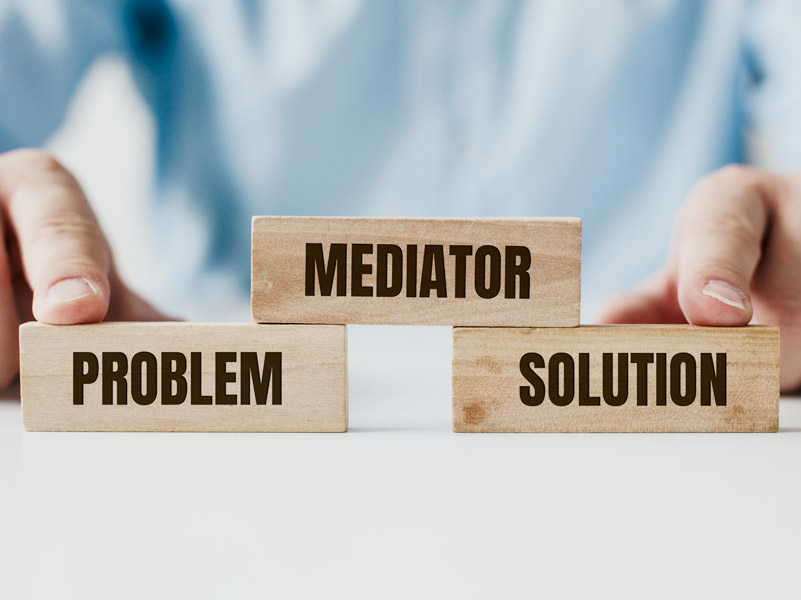
Blog
Counsel’s Failure to Mitigate Creates Additional Issues

When retaining counsel, it is universally understood and expected that the attorney(s) is hired to mitigate the issue at hand.
Unfortunately, this is not always the case and, in some circumstances, the attorney creates more issues than there were to begin with. Recently, I spoke to an attorney who was privy to a case in which another attorney not only abused their power, but created issues that have costed their client hundreds of thousands of dollars in damages that simply resulted from a delay and lack of communication from said attorney, as well as their dishonesty to both their client and the debtor. This is best described as a failure to mitigate.
At the beginning of construction, the sub-sub-contractor was hired by a pool installation company to install a retaining wall, meant to prevent erosion. More specifically, in preparation for the wall, the sub-sub was to carve out a 90-degree angle and pack the appropriate dirt materials which would be the foundation for the cement to be poured. A vital factor here is the materials used to achieve the desired result. The space cannot be dug at random. The correct dirt must be used. If the dirt is too soft or not correctly compacted, the concrete will crack and consequently, the retaining wall with succumb.
Due to delays in construction, the project did not commence when expected and ultimately was behind schedule. Delays gave way to impatience; impatience gave way to desperation for the project to be completed. With this desperation in mind, the General Contractors maintained an “any means necessary” mentality, providing the incorrect materials, but materials, nonetheless. For example, the dirt provided was derived from a previous job and was full of organic materials and water from being rained on during transport. Not only was this dirt the incorrect materials, but it was poor quality altogether, facts of which the GC and owners were made aware of. Despite knowing the issues with the materials, the owners insisted the speedy completion with the materials provided. As could be expected, such haste came with its consequences and the inadequate materials allowed for the concrete to sink, crack, and eventually collapse.
Following the demise, the owners of the property hired an attorney to review the damages and reach a solution. On the contrary, this attorney is notorious for creating problems rather than solving them, and this case was no exception. As his counsel commenced, this attorney demanded that all work cease and any communication between the owners and sub-contractor go through him, no contact was to be made directly between the two. Further, he demanded that corrections be made within 7 days from receipt of notice or else suit would be filed. The issue proved to be increasing in difficulty and seemingly unlikely to reach a quick consensus. To make matters significantly less amicable, communication was not adequately or punctually relayed to each party. As such, there was no settlement agreement reached, despite one being suggested. While the sub-contractor implored their willingness to fix the damages with the supervision of the owners’ choosing, the attorney, rather than introducing the settlement to the owners and negotiating such, decided that the settlement was inadequate and therefore, rejected such.
Just like the old wise tale “It will all come out in the wash,” as will in a deposition. After realizing the settlement had been denied before ever crossing their consent, the owners subsequently released this counsel, but not without facing the brunt of the blow with weighty attorney’s fees. What began as a $30,000 project quickly escalated to costing hundreds of thousands of dollars in attorney’s fees and damages, which resulted from negligence and a failure to mitigate. Definitively, the failure to mitigate doctrine speaks to the calculation of damages and holds that a party generally cannot recover for losses that the party could have avoided by reasonable efforts. Due to such a default, additional issues have incurred, including, but not limited to a leaning pool deck that will undoubtedly collapse if left flawed.
Instances such as this are perfect, yet unfortunate, examples of how lawyers create issues that are often at the expense of their client, leaving the responsibility on the shoulders of the victim. In such instances and inconveniences, the client is often plagued with the additional consequences with a lack of knowledge of where to turn. Hypothetically, if the client had been introduced to alternative dispute resolution, it is likely that issues could have been mitigated rather than progressing further. Statistically, mediation has an impressively high success rate, with an aggregate settlement rate of 92%. In theory, had mediation been an avenue of pursuit, the General Contractor and Sub-Contractor would have likely split the $30,000 remediation and the owners would have received the job outcome they originally hoped for, further reducing the chances of additional issues being born out of a failure to mitigate.








